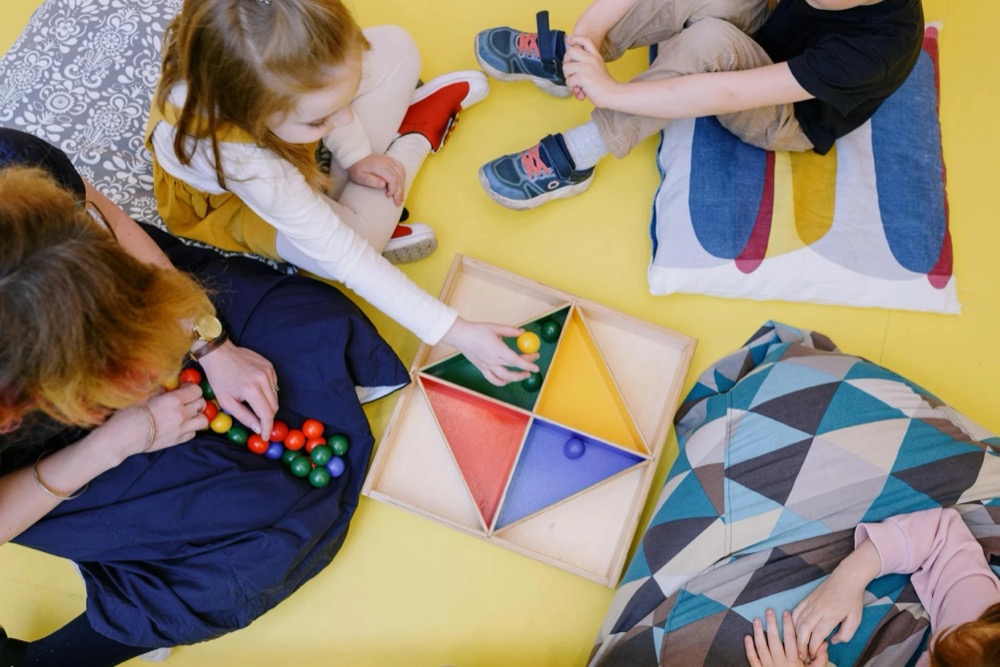By using our website, you agree to the use of cookies as described in our Cookie Policy
How Montessori Curriculum Fosters Independence and Critical Thinking

 Image Credit: Pexels
Image Credit: Pexels
The Montessori curriculum is a unique educational approach that focuses on fostering independence, critical thinking, and a lifelong love for learning in children. Developed by Dr. Maria Montessori, this method has gained worldwide recognition for its ability to nurture children's natural curiosity and help them reach their full potential.
In Montessori schools in Collingdale, children are encouraged to explore their environment, make choices, and learn at their own pace. The curriculum is designed to provide a carefully prepared learning environment that supports children's cognitive, social, emotional, and physical development.
In this article, we'll explore how the Montessori education promotes independence and critical thinking skills in children and the benefits of this educational approach.
Fostering Independence through Self-Directed Learning
One of the core principles of the Montessori curriculum is the emphasis on self-directed learning. Children are given the freedom to choose their activities and work independently, with the guidance and support of trained Montessori educators.
The Montessori classroom is organized into different areas, each focusing on a specific subject or skill, such as practical life, sensorial, language, mathematics, and cultural studies. Children can move freely between these areas, selecting activities that interest them and align with their developmental stage.
By allowing children to take ownership of their learning, the Montessori curriculum helps them develop a sense of autonomy, self-motivation, and responsibility. Children learn to set goals, manage their time, and take pride in their accomplishments, essential skills that will serve them well throughout their lives.
- Montessori classrooms often have uninterrupted work periods, allowing children to focus and complete their chosen activities without frequent transitions.
- Children are encouraged to collaborate and learn from one another, fostering social skills and a sense of community.
- Montessori educators act as guides, observing children's interests and providing individualized support when needed.
- The prepared environment is designed to be orderly and aesthetically pleasing, promoting concentration and respect for materials.
- Children are taught to care for their environment and take responsibility for their actions, developing a sense of ownership and accountability.
Developing Critical Thinking Skills through Hands-On Learning
The Montessori curriculum emphasizes hands-on learning experiences that engage children's senses and encourage them to explore, question, and problem-solve. Montessori materials are carefully designed to isolate specific concepts and skills, allowing children to learn through direct experience and discovery.
For example, the Montessori math curriculum uses concrete materials, such as number rods and bead bars, to help children understand abstract mathematical concepts. As children manipulate these materials, they develop a deeper understanding of quantity, place value, and mathematical operations.
Through hands-on learning, children develop critical thinking skills, such as observation, analysis, and problem-solving. They learn to ask questions, form hypotheses, and draw conclusions based on their experiences, fostering a scientific mindset that will serve them well in their future academic and professional endeavors.
The Benefits of the Montessori Curriculum
The Montessori curriculum offers numerous benefits for children's cognitive, social, and emotional development. Some of these benefits include:
- Increased self-confidence and self-esteem
- Improved concentration and focus
- Enhanced problem-solving and critical thinking skills
- Greater creativity and imagination
- Stronger social skills and empathy
- A lifelong love for learning
Research has shown that children who attend Montessori programs tend to have better academic outcomes, higher levels of engagement, and more positive attitudes towards learning compared to their peers in traditional educational settings.
| Montessori Curriculum Feature | Benefit |
|---|---|
| Self-directed learning | Promotes independence, self-motivation, and responsibility |
| Hands-on learning experiences | Develops critical thinking skills, such as observation, analysis, and problem-solving |
| Multi-age classrooms | Encourages social interaction, collaboration, and peer learning |
| Individualized learning | Allows children to learn at their own pace and fosters a love for learning |
By choosing a Montessori program for your child, you are investing in their future success and providing them with the tools they need to become independent, critical thinkers, and lifelong learners.
Finding the Right Montessori Program for Your Child
When searching for a Montessori program for your child, it's essential to look for a school that adheres to the authentic Montessori principles and employs trained Montessori educators. Consider factors such as the learning environment, the quality of the materials, and the school's commitment to the Montessori philosophy. Collingdale Academy has an exceptional Montessori program that fosters independence and critical thinking skills in children. With a dedicated team of experienced Montessori educators and a carefully prepared learning environment, Collingdale Academy provides a nurturing and stimulating atmosphere where children can thrive.
To learn more about Collingdale Academy's Montessori program or to schedule a tour, contact us here or call 267-217-2275. Discover how the Montessori curriculum can empower your child to develop the skills and mindset necessary for lifelong success.
‹ Back


